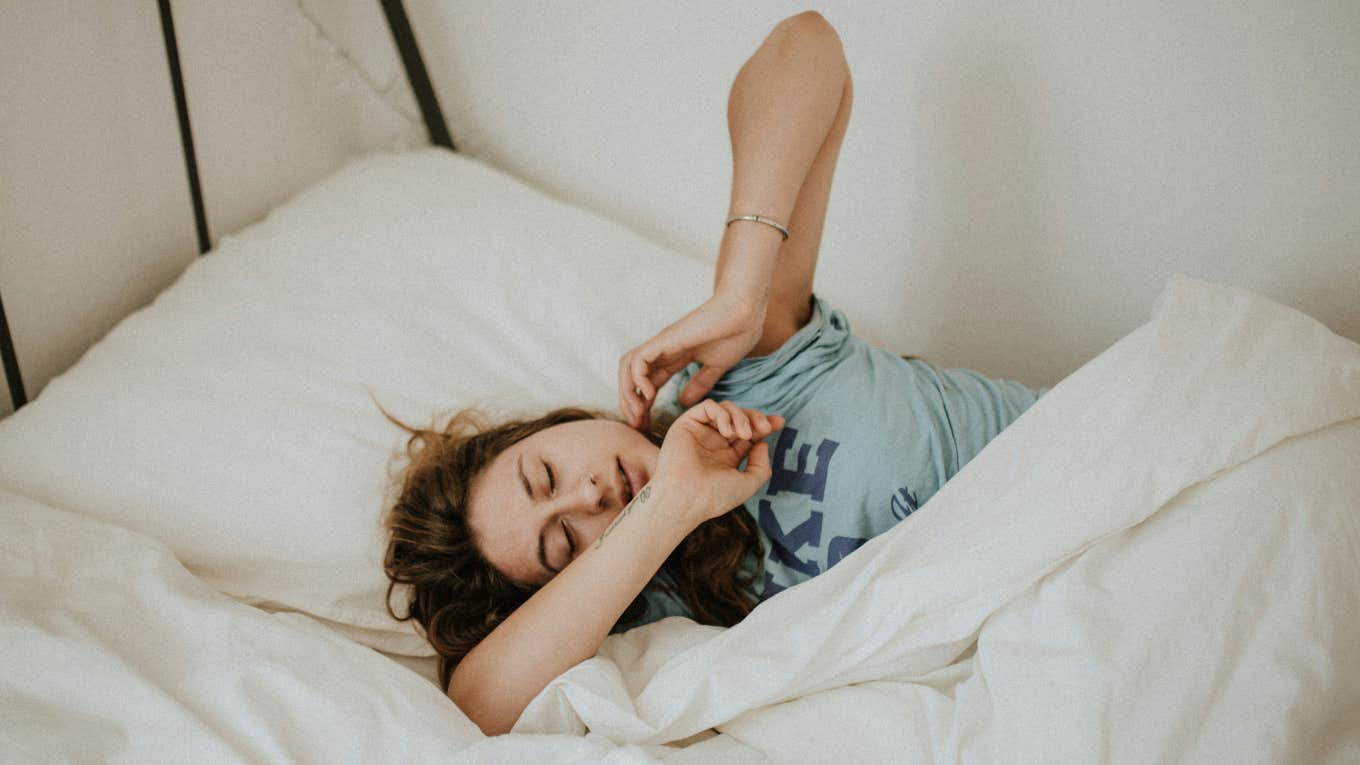Sleep Experts Warn That What We've Been Told About The 'Correct' Sleep Position Is All Wrong
Getting a good night's rest is super important to your overall health.
 Kinga Howard / Unsplash
Kinga Howard / Unsplash There’s no better feeling than climbing into bed after a long day. Curling up under your quilt and letting your head hit the pillow is just the beginning of your journey into dreamland.
Despite extensive research on the subject, there’s a lot of conflicting information about sleep out there, and some of it might be stopping us from getting a good night’s rest.
Sleep experts warn that what we’ve learned about the ‘correct’ sleeping position is totally wrong.
You’ve probably heard an endless list of tips and tricks for catching Z’s, including which position is best for your body to sleep in.
Maybe you’re someone who likes to fall asleep on your side; only when you wake up in the morning do you find that you’re on your stomach. You might be worried about how you’ve moved around in your sleep, but there’s no cause for concern.
The long-held idea that certain sleep positions are better than others might actually be incorrect.
Sleeping on your back has long been maligned as a straight path to poor sleep, but that’s not necessarily true. Unless you have sleep apnea, a condition in which your airways collapse during sleep, causing you to stop breathing throughout the night, sleeping on your back might not be problematic.
We can’t control our bodies while we’re sleeping, and it’s probably best not to force yourself into any particular position.
In 1977, a psychologist named Samuel Dunkell maintained that a person’s sleeping position offered clues about their personality and underlying psychological traits.
Another psychologist, Joseph De Koninck, debunked Dunkell’s theory after a research project where he photographed people’s sleeping positions during the night.
De Koninck discovered that our sleep position isn’t connected to our personalities or even the sleep stage we’re in. He noted that the way you fall asleep at night isn’t always how you’ll stay sleeping, which explains why you wake up in a different place in your bed than where you started out.
 Photo: Milan Gaziev / Unsplash
Photo: Milan Gaziev / Unsplash
Our sleep patterns change as we get older. As we age, the number of times that we change how we hold ourselves during sleep lowers.
Older people and people with bigger bodies move around in their sleep less than younger people do.
We have very little control over how our bodies move once we’re asleep, so we’re better off letting ourselves lie as we will.
 Photo: Vladislav Muslakov / Unsplash
Photo: Vladislav Muslakov / Unsplash
Raman Malhotra, who was once the president of the American Academy of Sleep Medicine, recommends worrying less about your sleep position and paying close attention to how you feel when you wake up in the morning.
Instead of concerning yourself with what position you sleep in, make sure you’re practicing healthy sleep hygiene.
Establish a bedtime routine without phones or screens. Turn your lights down low. Avoid drinking caffeine past noon, and try to get into bed around the same time every night.
Listening to your body’s specific needs and honoring them will award you the best possible sleep you can get, no matter what position you wind up in.
Alexandra Blogier is a writer on YourTango's news and entertainment team. She covers social issues, pop culture, and all things to do with the entertainment industry.

